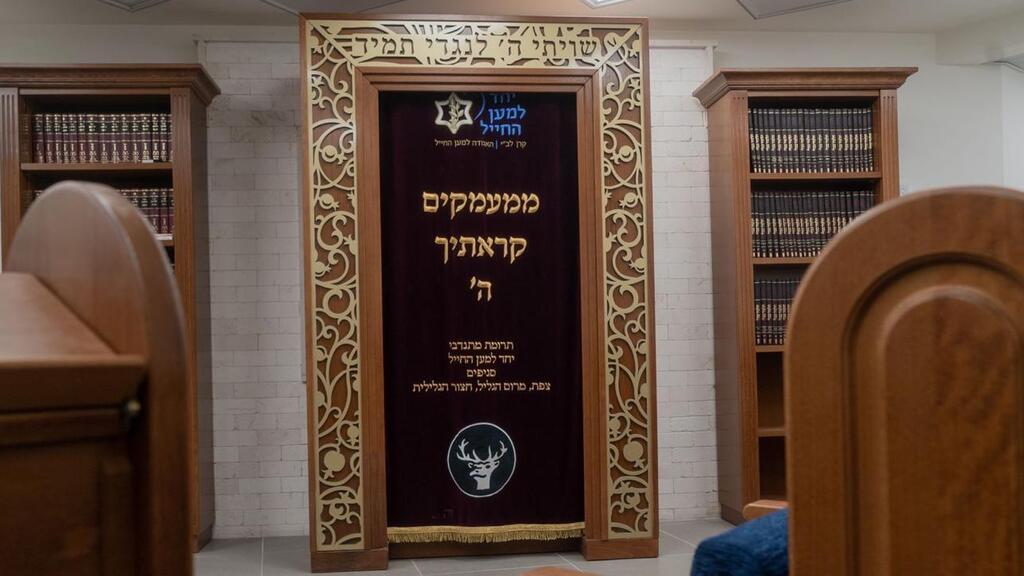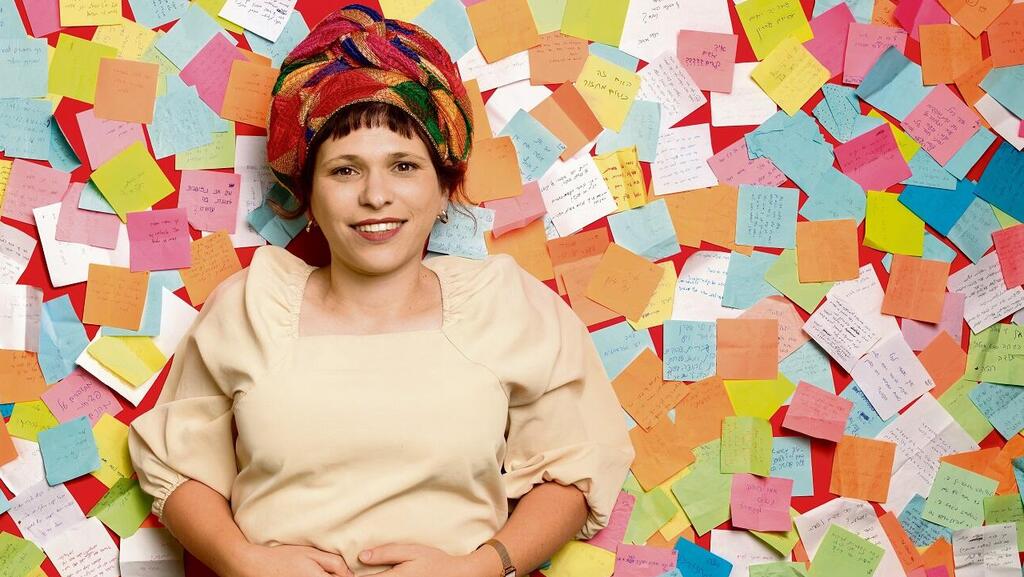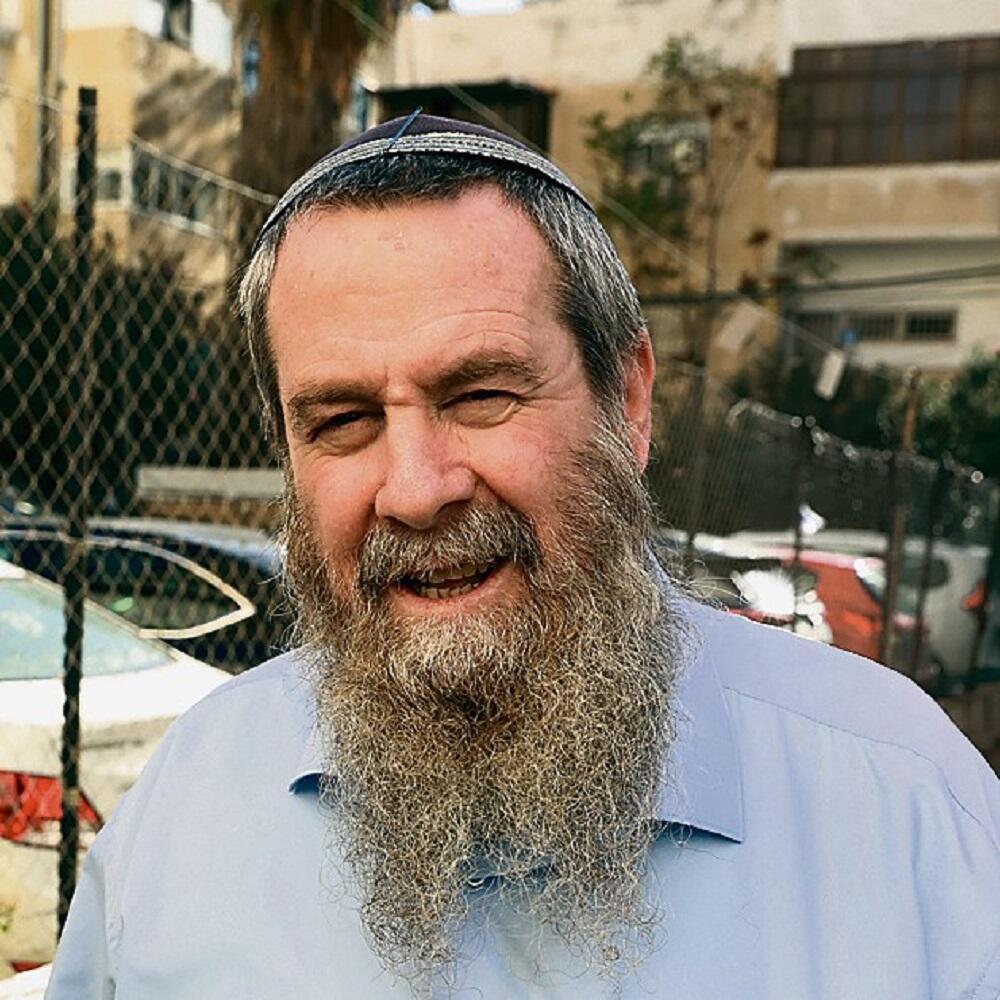Hanan Ben-Ari, an Israeli pop star who also happens to be an observant Jew, recently released a music video for his song "Ela Bee" ("But, in me"), in which two women and two men are dancing. They're not naked, mind you. Not even half naked. In fact, they're well covered.
Still, rabbis decided the video was too risqué, since its content suggested an "overwhelming" amount of personal freedom. At least as far as rabbis are concerned. Outraged fans berated the singer online, telling him he forgot his religious upbringing. Many even told him they've taken him off their playlists. His response - "God belongs to no one" - only made them angrier.
Maor Kaplan, a conservative religious woman from the University of Haifa is not onboard with the bashing of the singer. She also is working with religious teens, helping them explore the subject of sexuality.
"The storm his video has created represents the dichotomy: you're either with us, sully committing to the life of an observant Jew, or you're against us. The Halacha (Jewish law) is a rather dichotomic document, but the educational language needs to address those living in between the extremes.
"If we don't educate ourselves to accept all facets of the Jewish existence, we will end up losing so many people along the way."
Will you continue listening to him?
"Haven't thought about it, but I'm not into boycotts. His music does not represent something abhorrent to my values as a Jewish person."
Can you stand against the consensus?
"I'm 100% committed to the Halacha," says the 35-year-old mother of six. "But, in the educational context, you can't speak with the mentality of 'you're either with us or against us.' Discourse has to be more accepting of all Jewish experiences."
Kaplan practices what she preaches. She has a website and two books out, all of which deal with the issue of sexuality in a forbidden sphere. She has even become an independent publisher.
A 1,000 copies sold within the first week - it's a best seller!
"I never thought about it in those terms, but I definitely want to reach as many souls as I can. The number of physical copies I have is a reflection of the level of demand.
"Until about eight years ago, sex education in the religious sector was non-existent. The first time girls were exposed to the issue of sexuality was on their wedding night.
"But, humans are sexual creatures, and their wedding night can't be the first time they're exposed to it. Religious teens go through the same thing secular ones do, even if they're severely discouraged to engage on the topic."
3 View gallery


Synagogues aren't exactly accepting of sexual desires
(Photo: The IDF Spokesperson's Unit)
Who is at fault?
"We are. For generations, the religious have been brought to believe the mere thought of sexuality means the pervasiveness of our darkest inhibitions, but the veracity of our hormones does not change according to the size of our yarmulke."
Did you mother speak to you about sexuality?
"She didn't even mention periods to me, but I'm not upset about it. I received much from her, including some things that can't be uttered. I saw a father that respected my mother. It was a house full of love."
The seventh of eight children, Maor grew up in Psagot, a settlement just east of Ramallah in the West Bank. Her father, Rabbi Mordechai Eliyahu, was an instructor and an arbitrator at a Jewish conversion court.
Her mother, Tzila, was somewhat of a pioneer in terms of sexual religious education. She travelled the country to teach all sorts of religious settings about hormones, and was the first to write educational books about it. "She didn't speak to me about sexuality, but her books were all over the house, so the subject was always on the surface."
During her high school years in the city of Gedera, she began noticing the gap between her religious upbringing and the outside world. "I noticed the gap, but still didn't feel the calling."
She later became a social worker, and at 23, married a yeshiva teacher named Yoad Kaplan, whom she met through a matchmaker. "She didn't even know us."
So how did it happen?
"I started dating when I was 20. Wanting a relationship and wanting to get married are the same thing when you're religious. My mom noticed that I was ready for love and asked others to introduce me to religious guys they knew. My dad died of cancer a month after I met Yoad. That hardship connected us. We got married after three months."
Do you refer to him as your husband?
"No, as my person. Despite being wounded in combat and donating a kidney, he is still being called up for reserve duty. Despite having six children, I make it a point to explain to religious teens that not everyone needs to have the same number of children. Each couple can plan their family according to their own circumstances."
And how does a reverent daughter of Israel get into sex ed?
"After giving birth to my first child, I began exploring the issue of sexuality with mentors and private tutors. Since hardly any women were speaking about the issue back then, we opened a first-of-its-kind training program. I decided to work with girls only, because I felt somewhat uncomfortable around boys."
In her first book, Body Language, she encourages mothers and daughters to embark on a journey together to understand sexuality more profoundly. "Mothers and daughters wrote to me, saying the book really got them to open up to each other about body image and 'where babies come from.'"
Was the book also introduced into Haredi libraries?
"I focus on the religious sector because I believe that's where the almighty wants me to teach. The Torah speak of it all. Incest, Yehuda and Tamar and those who slept with his daughters. I don't believe God wrote the Torah so we would ignore parts of it. It's actually the parts they usually skip that give teens a sound moral compass."
You speak of sexuality, but not of sex
"The practical part of how to get pregnant is something religious teens can get anywhere. I focus on sexuality. It's about emotion, intimacy and vulnerability. A sexual experience is an emotional one. People who aren't sexually active are also aware of their sexuality, on some level."
The most common issue with religious girls is a crisis of confidence. "They grow up believing that women want love and men want sex. Part of my job is to rehabilitate their belief in men. Each person has a mind and a heart.
"I began writing my second book due to an email I got from a girl who wanted to understand sexuality, but didn't know where to look. She wrote to me that she longs for love and touch from a man, and doesn't know how to find a release for that, with pressure building up inside of her."
What did you say?
"It's a complicated situation. The Halacha forbids all sexual activities before marriage. No masturbation, no watching erotic material. I believe she'll feel relief upon acknowledging her own sexual urges. They're not sinful, but part of our development.
"Boys sometimes have it harder due to expectations, but I don't write to them because I think they deserve a proper masculine role model and that can't be me."
You seem to dodge giving a clear answer on self pleasure
"No dodging. I say that a woman's body is able to experience incredible sensations and that self pleasuring is not going to inhibit her from a healthy sex life later on."
So you're normalizing masturbation for girls
"A boy is forbidden from masturbating because the Halacha forbids releasing sperm if it isn't for conception, but female masturbation is not strictly forbidden. Still, religious perception is that sexual pleasure means an encounter between a man and a woman. So we need to preserve ourselves for such encounters."
What's the bottom line?
"The Torah isn't just about what is forbidden. There's room for introspection. Writing helps you be aware of your body. Telling a girl to simply pray, learn the Torah and get married prevents girls from understandings that their full being to also attached to the lower part of their bodies.
The interview with Maor Kaplan took place right after it became known that MK Avi Maoz was set to take partial control the Education Ministry's school curriculum department. Maoz, of course, is the leader of the Noam party - known for its staunch anti-LGBTQ positions and ultra-religious views.
"There is also a change on a governmental level. I'm trying to get sexuality on the curriculum, since I can't accompany all teen girls indefinitely."
Are you worried that Maoz will try to undermine your plans?
"I don't believe in discourse that disregards your fellow man. Maoz's positions hurt Judaism because they come from a place of anger and belittlement. I know plenty of religious people who speak from a place and acceptance and love, including the issue of the LGBTQ community."
How worried are you about the future of the country with people like him at the helm?
"I'm worried about hatred and polarization, but not so much about the country as a whole because I know plenty of religious Zionists, and I don't think they'll let his hateful ideas take hold."
Is it possible to not touch each other until you're married in today's Israel?
"It's possible. Some girls don't touch boys at all, or dress conservatively. Some have sex before marriage. At least 8% of boys and 5% of girls among religious high-school students have had sex.
"Some rules of Halacha you follow and others not so much. Being righteous isn't about never sinning, but about being able to get back on the straight and narrow after you've strayed.
Are religious parents still cutting contact with their children if they come out as gay?
"Not anymore. Conversion therapies are out. Never mind shock treatment. You can't turn someone into something they are not. Still, most yeshivas will give you the feeling there's something wrong with you. Being a religious gay man is much more complicated than being a secular one."
How was it standing at the altar next to a man whose touch you've never felt?
"The sense of attraction doesn't necessarily have to involve physical touch. At least not up until marriage."
What if after the wedding you find out you don't care for his touch?
"I don't like speaking about sexual compatibility because I believe sexual pleasure is an acquired skill. Ideally, the first encounter with a man is nice, and you perfect it over time. Some of my friends are couple therapists, and they tell me people come to them when everything is already broken. I wish all couples would seek therapy when there is still something left to save."



